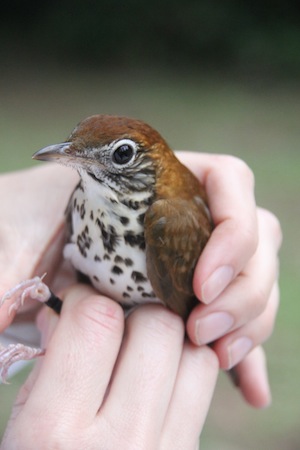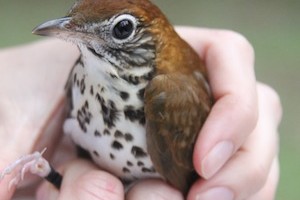
Wood thrushes like this one overwinter in Belize and Costa Rica, and breed in the summer in the US and Canada. New research suggests the young may delay their flights to avoid competing with adults. (Photo credit: Kevin Fraser)
A slower migration from overwintering grounds in Belize and Costa Rica to breeding grounds in Canada may help young wood thrushes avoid competition with adults, a new study shows.
Using data from geolocators – a kind of bird backpack that records location information – researchers showed that juvenile birds leave almost 2 weeks behind the adults and took about 50 per cent longer to reach their destination. The young birds’ smaller wing size may lead to less efficient flight, requiring more stopovers.
Researchers also suggest that by delaying their arrival until after the best breeding sites have been fought over, the juveniles avoid competing with adults against whom they don’t stand a chance.
Original research paper published in the journal PLoS ONE on August 20, 2014.
Names and affiliations of selected authors



